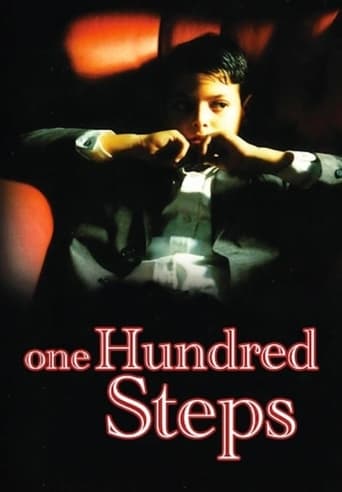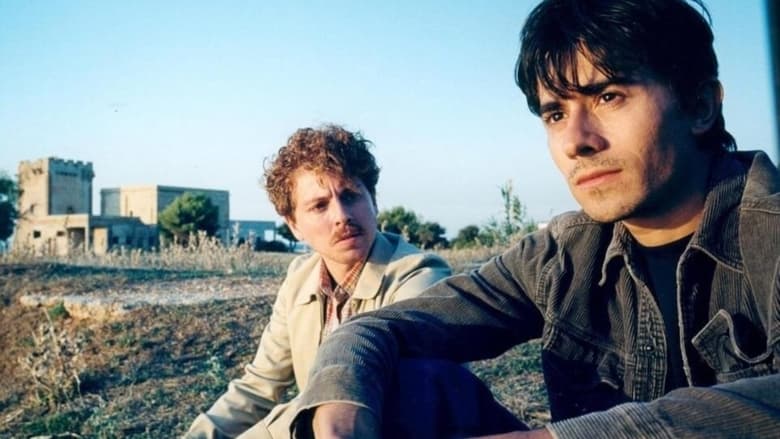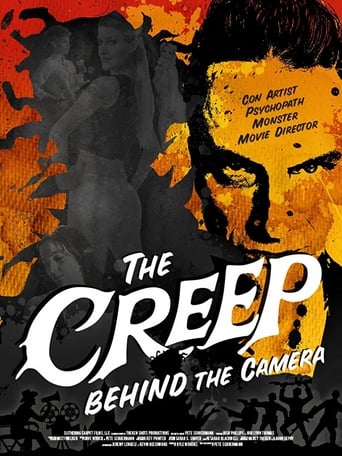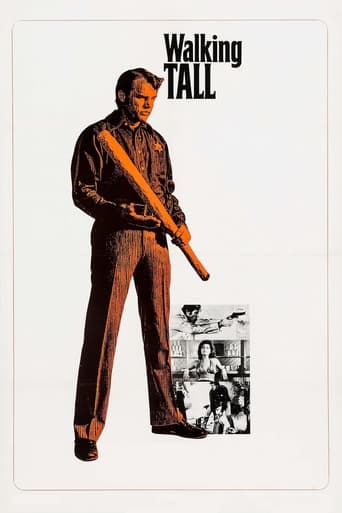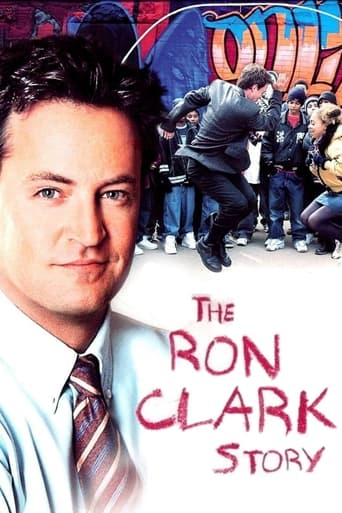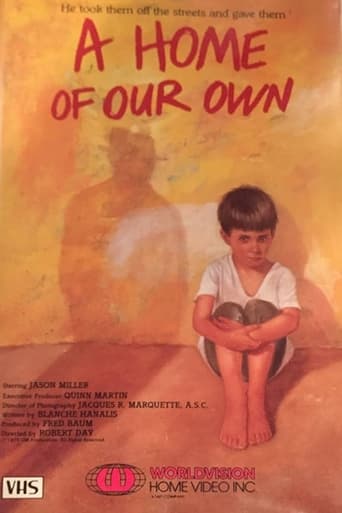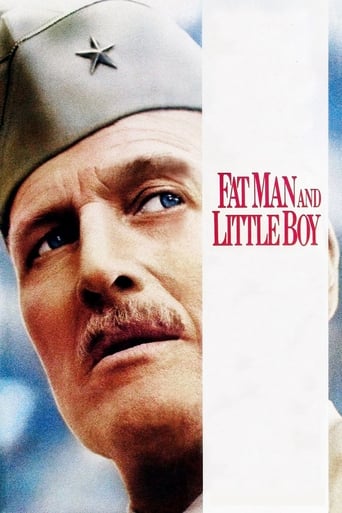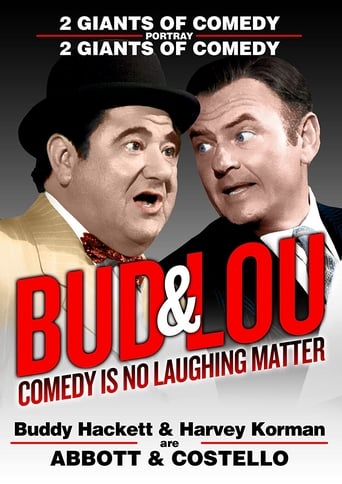One Hundred Steps (2000)
Peppino Impastato is a quick-witted lad growing up in 1970s Sicily. Despite hailing from a family with Mafia ties and living just one hundred steps from the house of local boss Tano Badalamenti, Peppino decides to expose the Mafia by using a pirate radio station to broadcast his political pronouncements in the form of ironic humour.
Watch Trailer
Free Trial Channels
Cast


Similar titles

Reviews
I think this is a new genre that they're all sort of working their way through it and haven't got all the kinks worked out yet but it's a genre that works for me.
A different way of telling a story
This movie was so-so. It had it's moments, but wasn't the greatest.
The film's masterful storytelling did its job. The message was clear. No need to overdo.
This film deserves many reflections (not all of them positive) about both its formal features and content. On the first category I can say, that this is a good film. On the second one I'll have to make a selection and invite you to watch the film and think about it. This film doesn't tell the true story of the facts which involved the true person Peppino Impastato. It isn't his biography. It's just the narration of his life, life understood as the net of relationships of a single person with his environment (territory, family, friends, politics, current contemporary ideas). So we don't watch a documentary film but a tale whose main character is Peppino Impastato, actually we see photos of the real Peppino only at the end oft the film. Nevertheless what Peppino makes through in the film is the representation of true facts. It's very difficult to tell a tale which bases on historical facts. Giordana has already attempted that in La meglio gioventù when he tried to show that history concerns the life of everybody creating an imaginary family, whose life builds the plot of the film, portrayed against the real background of Italian history. In I cento passi the task was more difficult because the narrated historical facts concerned the life of a real single person which were actually the plot of the film: obviously the director could not take many narrative liberties such as the romantic family saga plots in La meglio gioventù. So Giordana takes his liberties in trying to show the interior life of Peppino Impastato and his family. We receive a very impressive account of the possible thoughts and emotions of Peppino's father (sometimes a violent monster, sometimes a sad and lonely looser, conscious that the life of Peppino depends entirely on his own capacity to observe the mafia code, and, at least in this way, caring father) and a more sober representation of his mother and his brother (who are still alive). This tale of the relationships between the people who lived these true facts 30-40 years ago is in the end a reflection about the cruelty of the inhumane situation which everybody had to pull through when living in a mafia world: for example Peppino has to make radical and sad decisions and his father has to humiliate himself all his life long. That's why I say, that this is not a mafia film but a film about mafia or an anti-mafia film. Mafia doesn't mean the "Godfathers universe" (the mafia organization itself) but the systematical repression of liberty, which involves the progressive destruction of beauty (as Peppino says, sure not literally, in a very touching and peaceful scene of the film) and the following disorientation (not to say impossibility) of the self evolution. One of the first consequences of the contact with the mafia for the life of someone, in whatever form this may take place, is a lack of communication. So tries Peppino (who cannot speak with his father, as we see in their last very poor conversation) to reach so many people as possible with a broadcasting (Radio Aut), the cinema club or the itinerant theater. At a certain point in his fight he has to break with with Stefano Venuti, whose politics were too far from the people and with the superficial hippies, whose ideas were irrelevant for the territory. His efforts to liberate himself show the awareness of the impossibility of doing it in a merely private sphere which is separated from a meaning-full, beauty-full, humane environment. This, at least, makes his life (and we must thank Giordana for making a film about it) universally relevant.
Since my long-term girlfriend is from Cinisi (where the film is set) I regularly visit. I also learnt on my first trip out that she is actually a cousin of Giovanni Impastato. Thus I have an interest in the history and eat at the pizza restaurant each time I'm in the area. Not knowing what to expect from this film, I was stunned at the powerful performances and overall impact of this moving drama. Luigi Lo Cascio, baring the chiselled good looks of a young Tim Roth, delivers an outstanding performance far superior to anything any actor produces from Hollywood these days.The locations are beautiful and it's easy to spot the Corso Umberto main street and other sites from Cinisi used in the film.I Cento Passi is an outstanding movie, that presents an effective portrayal of the other side of living with the mafia, far, far away from the more accepted, almost romantic, wiseguy ideals seen in Goodfellas, The Godfather and the like.SPOILERI also found this after trawling the web for more info on the story BBC, Saturday, 1 May, 2004 (http://news.bbc.co.uk/1/hi/world/americas/3675535.stm)Gaetano Badalamenti, once known as the "boss of bosses" of the Sicilian Mafia, has died at the age of 80 in the US where he was serving a prison sentence. Badalamenti became notorious in the US for masterminding a crime ring that distributed heroin and cocaine through pizza parlours between 1975 and 1984. He was sentenced in 1987 to 47 years in federal prison. Born in the village of Cinisi near Palermo in 1923, Gaetano Badalamenti became a key figure in the Sicilian Cosa Nostra in the 1970s.Italy also convicted Badalamenti in absentia of the 1978 murder of a radio DJ who poked fun at the Mafia. The remains of Giuseppe "Peppino" Impastato were found torn apart by a bomb on a Sicilian railway line. Badalamenti was finally convicted of the crime in 2002 and sentenced to life in prison. Reuters news agency quoted an unnamed prison official as saying he died of a heart attack at a US federal medical centre in Devens, Massachusetts, on Thursday evening.
I was well surprised to see how with intelligence a film with a plot which could be easily mixed up to the typical "mafia's films serie" has been excellently directed and extremely well acted.Normally I do not make any type of comparison to the "golden years" (sixties-seventies) of the Italian cinema but for me is a must today to say that this film and the director: Giordana does not have anything to envy to Francesco Rosi and his films. The actor Luigi Lo Cascio is just excellent well deep involved in his character.Do not miss the film it worths even in DVD or VHS.Rating: 7/10
A very careful reconstruction of a real episode developing in Sicily from the '50s to the '70s. The film has the pace and the political idealism of "Z" by Costa Gavras. Americans might be interested to see the Mafia depicted in its Italian home-base, and relations between the (poorer, but more "original") Sicilian Mafiosi and their American counterparts / relations. This is a film on the protesting youth of the '70s, as well, with a lot of music like in the THE BIG CHILL. In Italy the film has been much discussed for its Mafia theme, but underneath there is a lot of family psychology.

